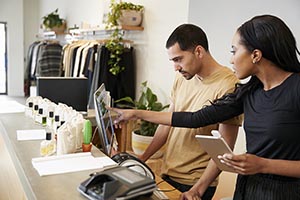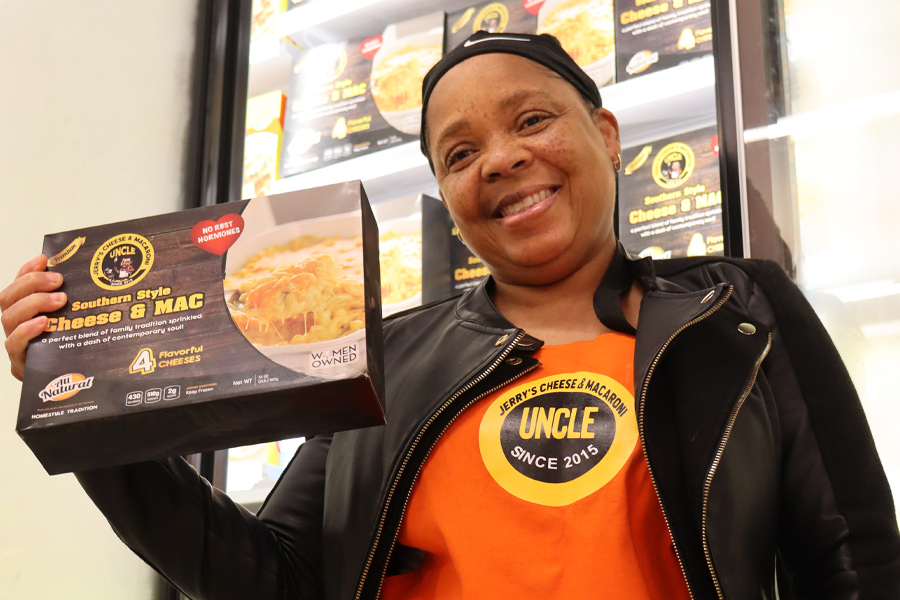Whether it’s walking dogs, selling baked goods, tutoring kids online or cutting lawns, the popularity of having a side gig is on the rise. A recent survey found that one in three Americans have a side hustle, with two thirds of those people having started within the last three years.
To run a side hustle, you need a way to accept payments. While cash and checks are fine, today’s customers would rather use more convenient methods like credit, debit or a mobile wallet. In fact, the volume of cashless transactions is expected to double by 2030, according to PwC. To accept digital forms of payment, you’ll need a point-of-sale system.
Benefits of mobile point-of-sale systems
A mobile POS (mPOS) can be a good choice for contracting and gig work because it lets you process transactions anytime, anywhere right from your own mobile device when paired with a card reader. The mPOS market is on the rise, with an estimated compound annual growth rate of 18% by 2027. While offering customers a convenient way to pay is good for business, the benefits of a mobile point-of-sale tool go well beyond the transaction.
Low POS startup cost
Being a contractor or solo business owner means being careful with how you spend your money. Acquiring a robust POS system can be expensive, but mobile options are much more affordable and don’t come with costly hardware or binding financial commitments. Plus, you may not even have to pay for the app itself, with the only cost going towards renting or purchasing a card reader, plus small payment processing fees when you make a sale.
Increased POS mobility
One of the biggest upsides to mobile POS is that it’s app-based, meaning you can install the software on your personal iOS or Android device. With your POS in your pocket, you’ll be able to take your business wherever you wish, without worrying about carrying around clunky, complicated equipment. Payments are securely accepted over cellular data, which also means you don’t have to worry about being near wi-fi to make a sale or accept your sales data.
Because you’re accepting credit and debit cards through your phone, everything happens digitally, meaning no cumbersome paper trail. You can offer your customers the option of SMS text or email receipts, depending on their preference.
Improved cashflow
As a small business owner, having your funds tied up in any way can hinder your success or growth, as you need good cash flow to cover your small business expenses. When choosing a mPOS provider, look for ones that offer settlement of funds quickly and do not place a cap on the total. Some mPOS providers offer same day funding, even on weekends.
Better backend organization
The mobile payment app helps you stay organized by serving as a central hub for your business. A daily sales summary in the dashboard help you stay on top of cash flowing in, and an in-app catalog or menu for your products or services can be edited in real time.
mPOS is also cloud-based, meaning data is stored in the cloud versus locally on your device. The ease of accessibility and instant updating of sales data makes it possible to integrate some mPOS apps with other business tools like accounting or labor management software.
Opportunities for growth
While you may just be a team of one now, choosing an mPOS with scalability in mind will make your future growth easier. Look for mobile POS providers who offer scalable solutions or the ability to add more devices to your mPOS software.
How to get started with mPOS
A mobile payment solution will provide value for you and your customers by putting control of your payments in the palm of your hand. When choosing a POS provider, look for ones that provide 24/7 customer support so you can provide the best customer service to your own clients.
Learn about the tools and systems U.S. Bank offers so you can grow your side hustle.





























































